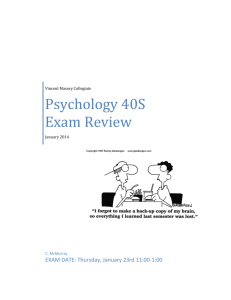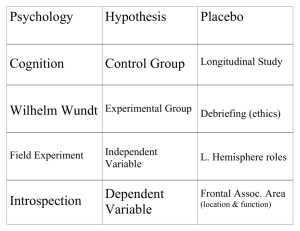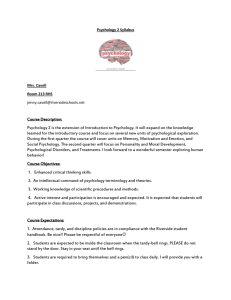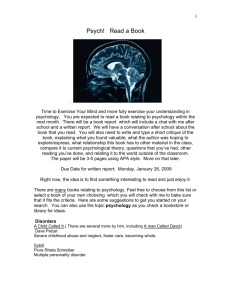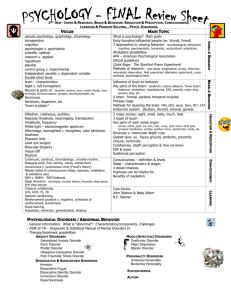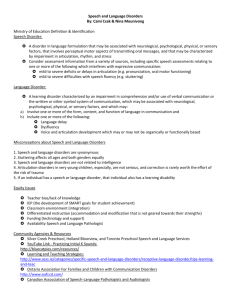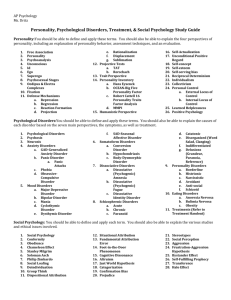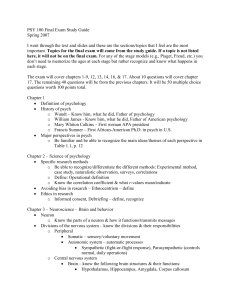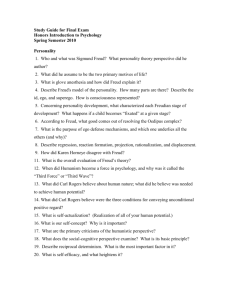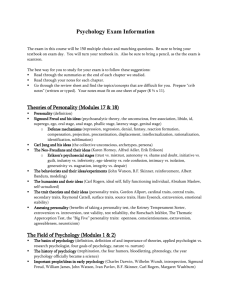Psychology Final Exam study guide
advertisement
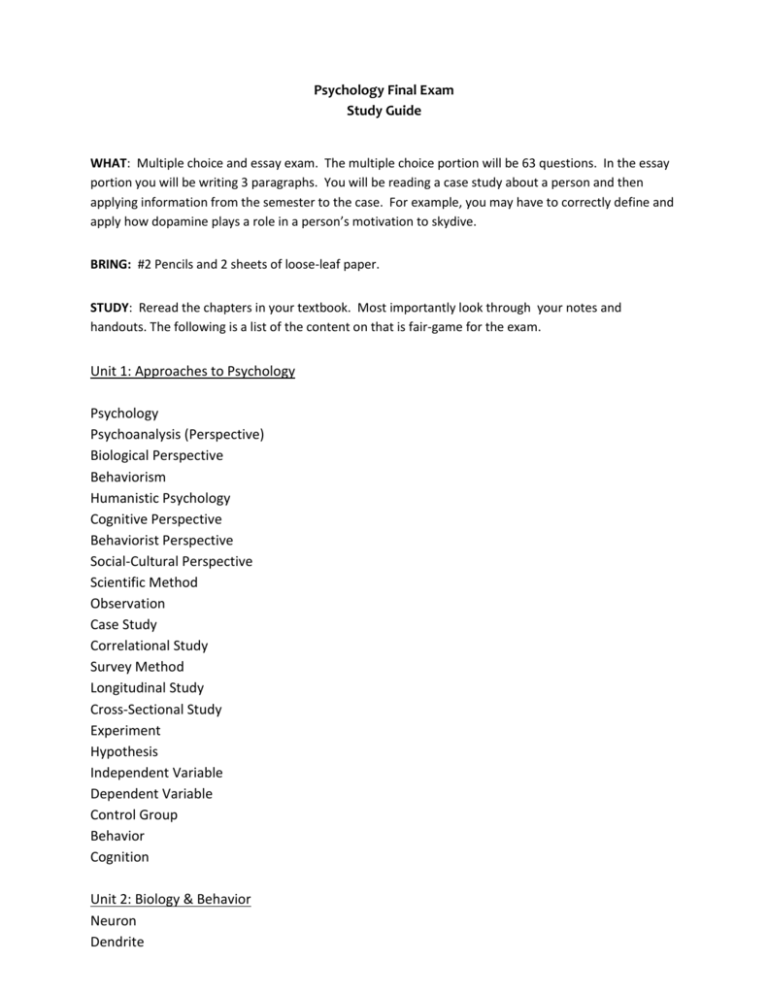
Psychology Final Exam Study Guide WHAT: Multiple choice and essay exam. The multiple choice portion will be 63 questions. In the essay portion you will be writing 3 paragraphs. You will be reading a case study about a person and then applying information from the semester to the case. For example, you may have to correctly define and apply how dopamine plays a role in a person’s motivation to skydive. BRING: #2 Pencils and 2 sheets of loose-leaf paper. STUDY: Reread the chapters in your textbook. Most importantly look through your notes and handouts. The following is a list of the content on that is fair-game for the exam. Unit 1: Approaches to Psychology Psychology Psychoanalysis (Perspective) Biological Perspective Behaviorism Humanistic Psychology Cognitive Perspective Behaviorist Perspective Social-Cultural Perspective Scientific Method Observation Case Study Correlational Study Survey Method Longitudinal Study Cross-Sectional Study Experiment Hypothesis Independent Variable Dependent Variable Control Group Behavior Cognition Unit 2: Biology & Behavior Neuron Dendrite Soma Axon Axon terminal Synapse Neurotransmitter Prefrontal Cortex Limbic System Brain Stem Cerebellum Medulla Left Hemisphere Right Hemisphere Split Brain Cerebral Cortex Hippocampus Amygdala Thalamus Longitudinal Fissure Corpus Callosum Frontal Lobe Parietal Lobe Temporal Lobe Occipital Lobe Broca’s Area Wernicke’s Area Sensation Gestalt Top-Down Processing Bottom-Up Processing Sensory Adaptation Absolute Threshold Perception Accomodation Difference Threshold Unit 3: Cognitive Processes Learning Classical conditioning Unconditioned response Unconditioned stimulus Conditioned stimulus Conditioned response Acquisition Extinction Generalization Behaviorism Operant conditioning Reinforcement Punishment Positive/negative reinforcement Observational learning Model Encoding Storage Retrieval Information Processing Model Serial Positioning Short-term memory Long-term memory Echoic Memory State-Dependent Memory Explicit/Implicit memory Consciousness Circadian rhythms REM sleep Restorative Theory of Sleep Sleep Deprivation Sleep Debt Sleep Disorders: insomnia; narcolepsy; sleep apnea; sleep walking Unit 4: Personality Personality Big Five personality traits Psychoanalysis Psychodynamic perspective Free association Unconscious Collective Unconsciousness Id Superego Ego Defense mechanism Displacement Projection Repression Humanistic psychology Maslow’s Hierarchy of needs-Motivation Self-actualization Self-concept Trait theory Social-cognitive perspective Unit 5: Psychological Disorders Psychological disorders Maladaptive behavior Unjustifiable behavior Atypical behavior Disturbing behavior Biopsychosocial model DSM-IV-R Anxiety disorder Generalized anxiety disorder Panic disorder Phobia Posttraumatic stress disorder Obsessive-compulsive disorder Mood disorders Major depressive disorders Bipolar disorders Dissociative disorders Fugue, identity Schizophrenia Personality disorder Somatoform disorders Hallucinations Psychotherapy
